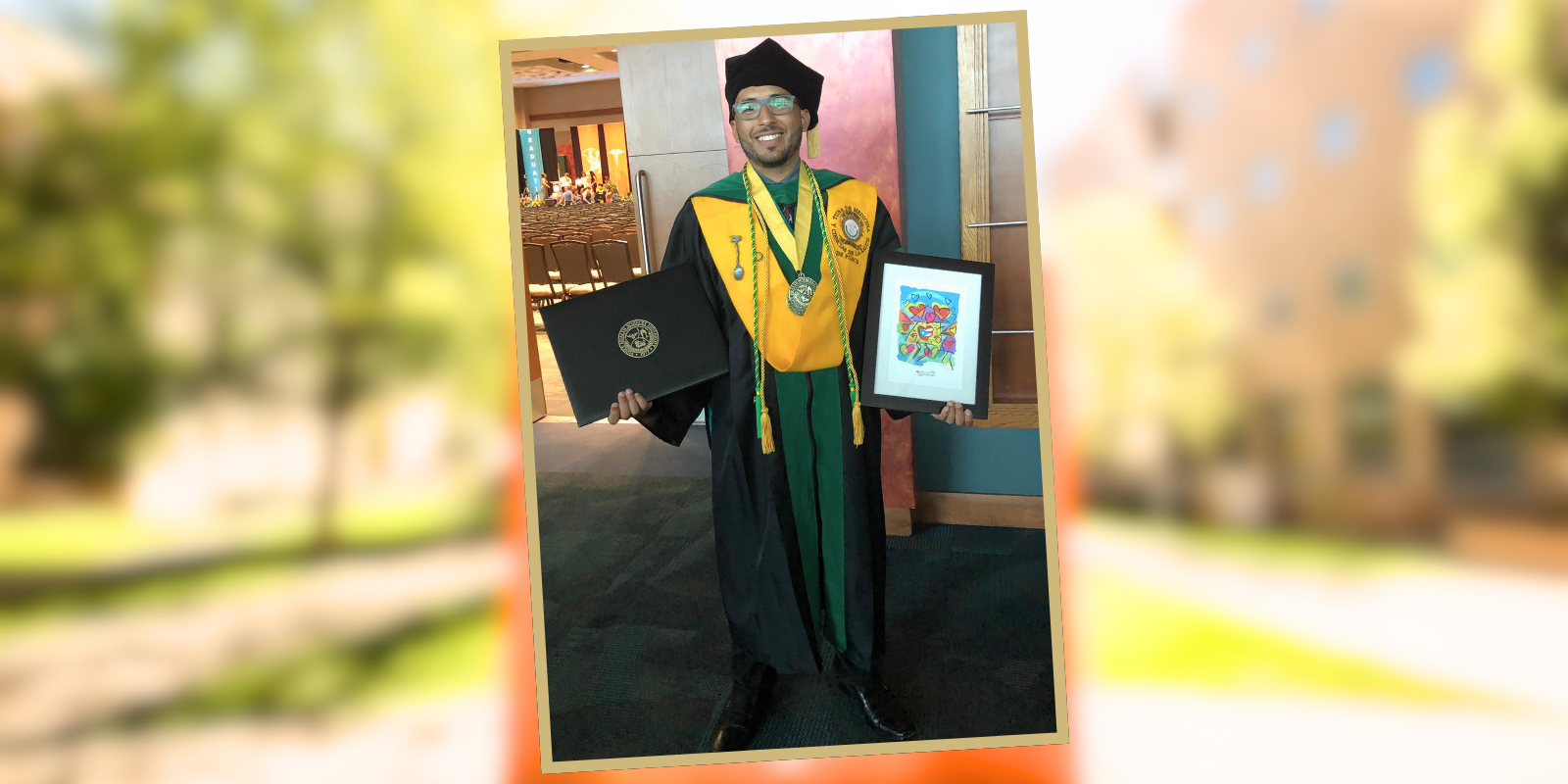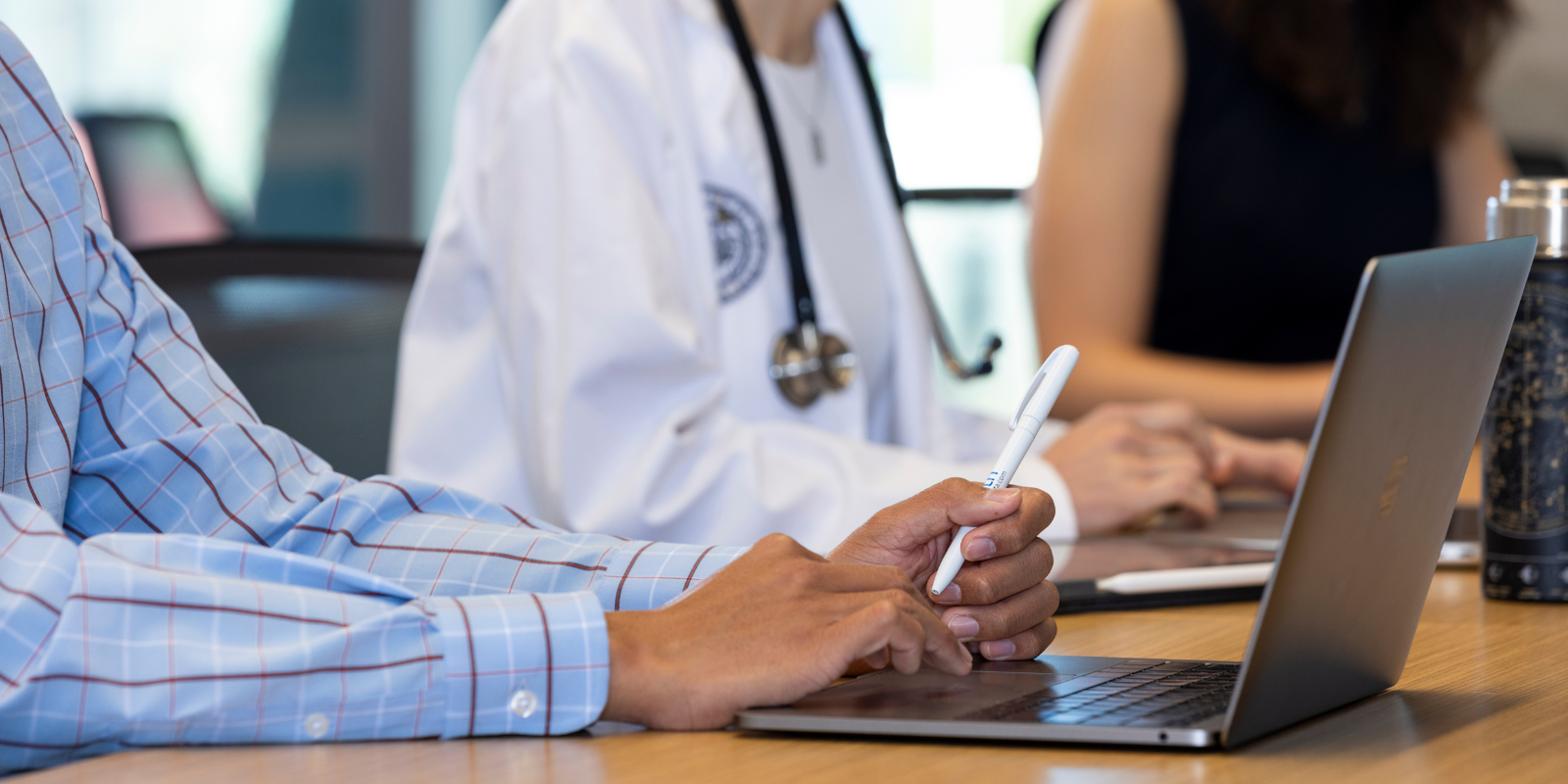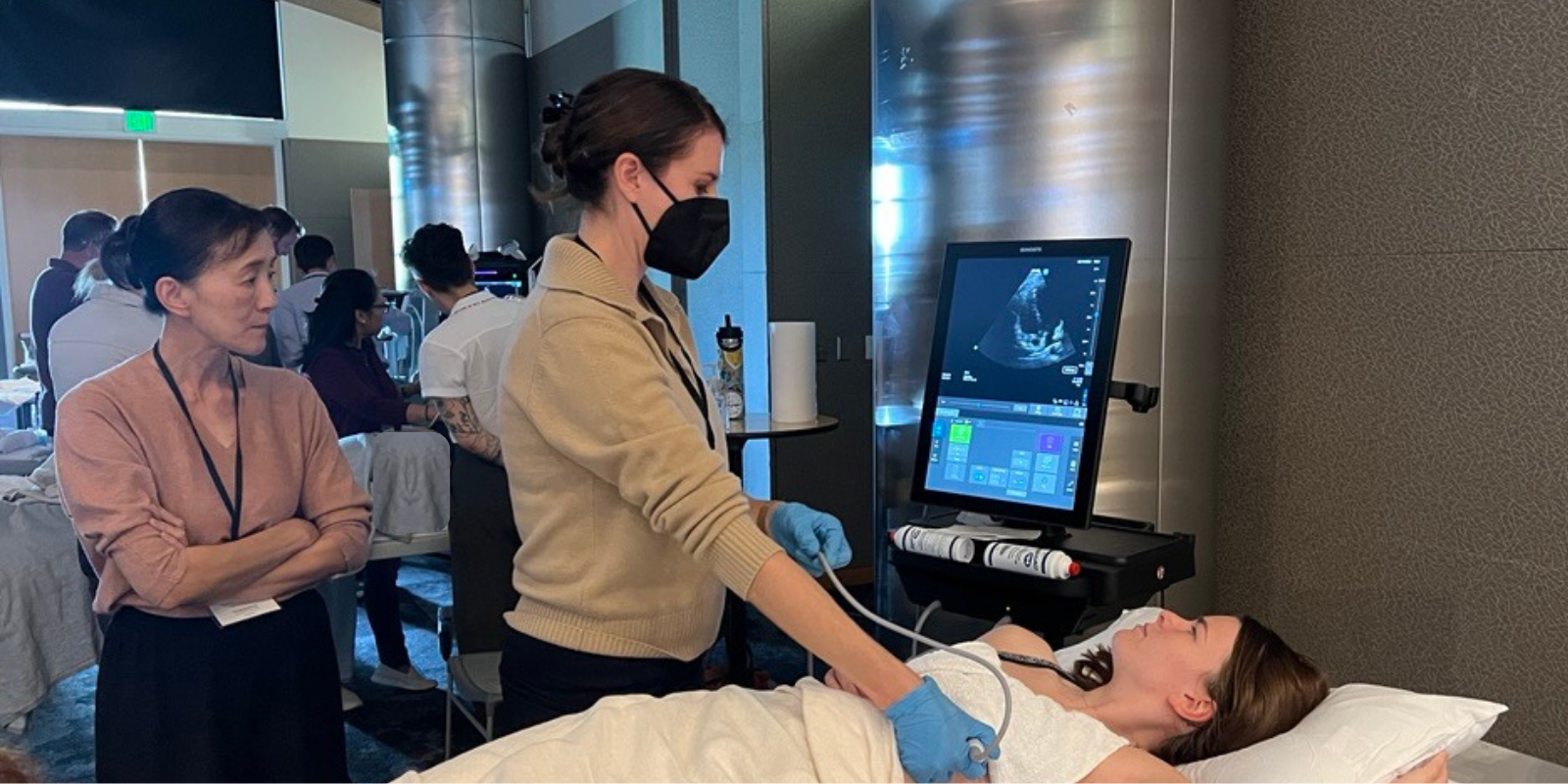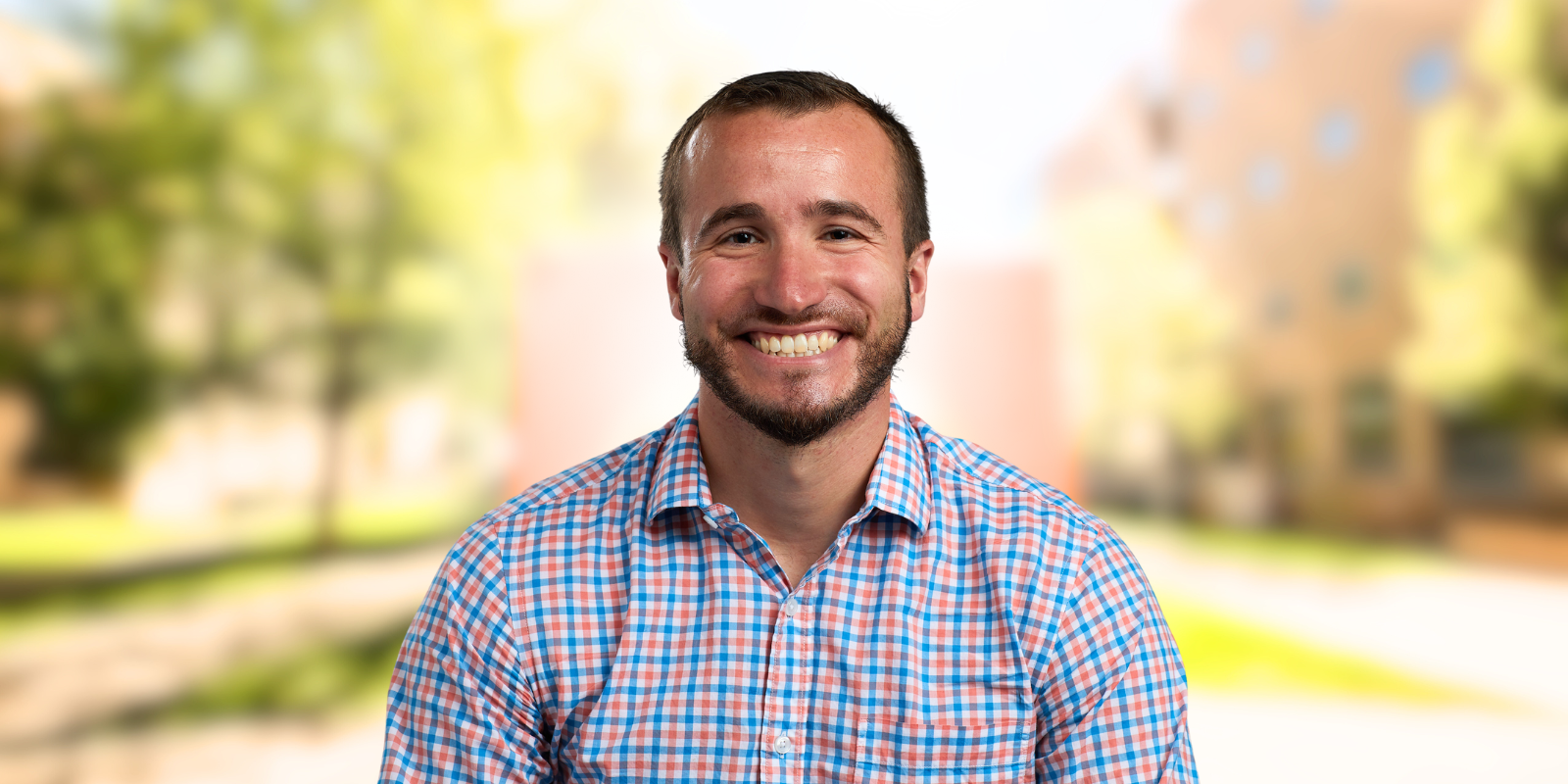Growing up in Puerto Rico as a science aficionado and son of a nurse, Anthony Robateau Colón, MD, became fascinated with the world of medicine from a young age.
Now, he is the first physician in his family and a fellow in the University of Colorado Division of Gastroenterology and Hepatology, furthering his training to best care for people with liver disease and expand care for Spanish-speaking patients.
However, the journey to becoming a health care leader has not been easy — and at one point, it didn’t seem possible. But through hard work, the support of mentors, and a leap of faith, Robateau has proven the power of perseverance.
“There is not just one path to achieve your goals. Everybody’s journey is different,” he says. “That’s what I’d tell anyone who is trying to get into medicine — it really starts with the mindset and developing your purpose and discipline to it.”
Becoming a first-generation doctor
Born in Queens, New York, Robateau moved to Puerto Rico when he was about 3 years old, as his family is all Puerto Rican.
“Early in life, my father had passed away, and so the person I was looking up to the most was my mother, who happened to be a nurse,” he says. “I was always a bit of a nerd. I loved science and learning how things worked, and I also really admired the job my mom was doing. I wanted to combine both things into what felt like a fulfilling path for me, so that’s where the spark started of wanting to become a doctor.”
Navigating the process to become a doctor, however, was challenging given that Robateau was the first person in his family to pursue becoming a physician.
“I didn’t really have anyone to learn from. And in high school, I got distracted with having fun with my friends and my grades took a hit. I remember someone telling me, ‘If you want to go to medical school, the way your grades are now and your behavior, you’re not going to be able to do it,’” he says. “I thought they were right, and it turned into a self-fulfilling prophecy.”
No longer thinking medicine was a viable option, Robateau decided to pursue business and accounting in college. After two years of struggling in his studies, he had a conversation with a friend that changed the trajectory of his life.
“I had mentioned to my friend that I had been interested in medicine a long time ago. He was studying business and had a similar feeling. Ultimately, he said, ‘I want to go back and do what’s passionate to me. Why don’t you do that, too?’” Robateau says. “I decided to give it a shot.”
Robateau approached counselors at the university and asked how he could pursue medicine. He switched his major to biology and began the journey to become a doctor.
“As soon as I started taking science classes, I felt really happy. I put my best effort into it, but unfortunately, because of my academic struggles while in accounting, it did affect my overall academic performance at the end of my undergraduate career,” he says. “I applied for two years for medical school and didn’t get in because I was not competitive enough academically.”
Eventually, he decided to pursue a newer master’s degree program, called the Master of Science in Medical Sciences, at Ponce Health Sciences University in Puerto Rico.
“The concept of it was to have a program that is similar to the first year of medical school,” he says of his master’s program. “That was a golden opportunity for me. It was really hard, but I put in the work and was able to get accepted into the medical school at the Ponce Health Sciences University.”
Although it took a lot of hard work and dedication from Robateau to graduate from medical school, he emphasizes that he could not have done it without the support of mentors, friends, and family.
“I’m the first person with a bachelor’s degree, first with a master’s degree, and the first physician in the family,” he says. “They are very proud.”
 Left image: Anthony Robateau Colón at his medical school white coat ceremony. Right image: Robateau celebrating his graduation from medical school. Images courtesy of Robateau.
Left image: Anthony Robateau Colón at his medical school white coat ceremony. Right image: Robateau celebrating his graduation from medical school. Images courtesy of Robateau.
Following his gut
One of Robateau’s first exposures to gastroenterology was as a student in Puerto Rico, when he shadowed a gastroenterologist who did transplant hepatology.
“I really loved everything she was doing and the long-term relationships she had established with her patients and how she impacted their lives. I wanted to do that,” he says.
Following graduation, Robateau did an internal medicine residency at the Mayo Clinic in Rochester, Minnesota. As he explored different specialties during residency, he found that he best fit in with the culture and the people who worked in gastroenterology.
“It just felt like being home,” he says. “It was a gut feeling.”
Wanting to explore something new and live somewhere else, Robateau was thrilled at the opportunity to come to Colorado and participate in the CU Gastroenterology and Hepatology Fellowship Program.
“As soon as I learned I had matched with Colorado for my fellowship, it felt right to me. This is where I’m meant to be,” he says.
By next year, he expects to have completed both a gastroenterology fellowship and a transplant hepatology fellowship at CU.
“This fellowship program is one of the hardest things I’ve done, especially that first year. Being new to the state, learning the different hospital systems and the patient populations they serve, I felt like a fish out of water,” he says. “The biggest thing that helped me was the relationships I’ve established with the fellows in my cohort, and the staff and faculty have been so supportive.”
 Anthony Robateau Colón sits beside the Mayo brothers statue in Rochester, Minnesota, while holding his residency diploma. Image courtesy of Robateau.
Anthony Robateau Colón sits beside the Mayo brothers statue in Rochester, Minnesota, while holding his residency diploma. Image courtesy of Robateau.
Serving Hispanic and Spanish-speaking populations
As a fellow, one of Robateau’s proudest accomplishments has been the relationships he has built not only with his cohort, but also with his patients.
“I still follow some patients I’ve had since day one. Being able to impact their lives and be there for important moments in their life, or for their families, that's something that not everybody gets to experience,” he says. “I'm very proud and grateful to be able to guide my patients through illness, through life, and death. That's probably my greatest achievement and my biggest contribution.”
Given that Robateau is Hispanic, speaks Spanish, and was trained in medical Spanish in Puerto Rico, he feels his cultural background helps him establish strong connections with Hispanic, Latino, and Spanish-speaking patients in Colorado.
“There is a large Hispanic population in the Denver area, and a lot of our patients are a reflection of that. There have been so many instances where I am able to provide care in Spanish, and patients are very grateful to have that cultural sensitivity to their care,” he says. “They’re more open about their health and more forthcoming, and I’m able to dig a bit deeper.
“It’s not just about removing barriers, it’s about going deeper with patients,” he adds. “I’ve had patients say, ‘Thank God you’re here and you’re my physician, because I wouldn’t want anyone else.’ And that’s the real reason you get into medicine — to be that person for someone.”
Advancing health equity continues to be a priority for Robateau. He is currently helping establish a pilot liver transplant clinic for Hispanic and Spanish-speaking patients — similar to the CU Hispanic Transplant Program, established in 2018 at the UCHealth University of Colorado Hospital, that aims to improve Hispanic patients’ access to kidney transplants.
Recently, Robateau attended a community outreach event that the kidney transplant program hosted, saying: “It was fantastic to see the community they’ve built with their Spanish-speaking kidney transplant patients and patients who are on dialysis. I saw the patients supporting each other and how happy they were to be part of the program. It was humbling to see and reassured me that this is a need.”
The liver transplant clinic is still in the formation stages, but Robateau feels strongly about its ability to benefit Hispanic patients by expanding access to care and helping remove cultural and language barriers.
“I’ve been honored to help spearhead this, with the support of my superiors. This clinic is needed, and it is something bigger than myself. Something we all can build on,” he says.
 Anthony Robateau Colón smiling in front of a map during his residency match day. Image courtesy of Robateau.
Anthony Robateau Colón smiling in front of a map during his residency match day. Image courtesy of Robateau.
A look to the past and future
Since starting his fellowship at CU, Robateau has experienced tremendous growth professionally and personally, honing his ability to communicate with patients and deliver the care they need.
“I feel much more focused on what I want to do. When I started, I wasn’t sure about my path or my purpose. But through exploring and putting myself out there, I’ve narrowed my passion to hepatology,” he says.
Although he is not certain what his next step will be after finishing the fellowship program, he knows he wants to use all the tools he’s gained through his gastroenterology and transplant training.
“At the same time, I want to make delivering care to Hispanic patients a big part of my career in some way. That is very important to me,” he says.
Reflecting on his younger self, who once doubted if a career in medicine was possible, Robateau says he would tell the high school version of him that “you are what you think.”
“The only way you can really find out if something is the right fit is by trying it yourself. Look for mentors and develop a support system that can help you. There are people who are more than willing to help, but it takes some initiative,” he says. “Also, give yourself some grace. It’s OK to make mistakes, to fumble, and then to figure it out. Practice makes perfect.”
“I loved every minute of my successes and failures, because that’s really what it’s all about — living the journey,” he adds. “Enjoy the process, go at your own pace, and understand that this journey is yours alone to walk through.”



